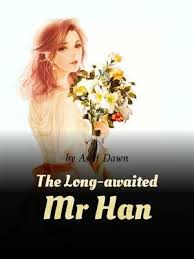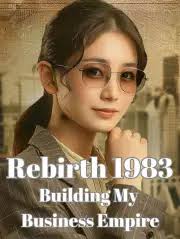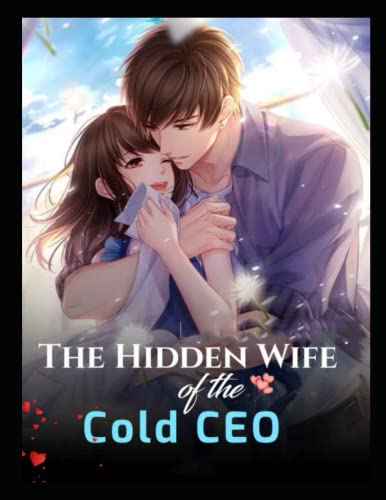The Story in 3 Sentences
A man shatters under grief when his pregnant wife leaps to her death after a cruel betrayal, leaving him haunted by the image of her broken body and the life they lost .
He is violently hurled back in time to the very day before her fall, armed with the crushing weight of his past failures and a desperate, singular mission to rewrite their fate by shielding her from the world’s cruelty and his own past indifference .
His journey transforms from frantic damage control into a profound, tender campaign of devotion, rebuilding trust brick by brick, amassing wealth not for power but for her absolute security, ultimately forging a future where love, not tragedy, defines their story .
Why It Stands Out
1. The Ultimate Redemption Arc, Written in Tears and Diamonds
This isn’t just a second chance; it’s a soul-deep excavation of regret turned into relentless, tangible action. The protagonist doesn’t merely apologize; he dismantles his old, careless self and rebuilds his entire existence around the singular purpose of protecting and cherishing Jiang Xue. His declaration, bending over to say, “Xue’er, I’m sorry! The me from before was a damn bastard,” isn’t just words—it’s the foundation of a new world he constructs for her, where even a fist-sized diamond is casually offered as a child’s plaything, symbolizing the absurd, boundless lengths he’ll go to ensure her happiness and safety . The emotional stakes are sky-high, grounded in the visceral horror of the initial loss, making every small victory in their rebuilt life feel monumental.
2. Business Warfare as Love Language
Forget cold corporate takeovers; here, every financial maneuver, every shrewd investment, every act of crushing a rival is fundamentally an act of love. The “Business warfare” tag isn’t a subplot—it’s the protagonist’s primary tool for creating an impenetrable fortress around his wife . Acquiring wealth isn’t about status; it’s about eliminating every possible external threat, every source of stress, every reason Jiang Xue might ever feel vulnerable or cornered again. His dismissive, “Investing today? I’ve got more important things to handle. Financial crisis? Not my problem,” isn’t arrogance; it’s the calm confidence of a man who has already decided that protecting his wife’s peace is the only metric that matters, turning ruthless capitalism into the most unexpected form of romantic devotion .
3. Slice of Life, But the Slices Are Golden
Beneath the high-stakes drama and financial machinations lies a deeply satisfying, almost therapeutic, focus on the quiet, golden moments of domestic bliss. The novel luxuriates in the “Pampering spouse” and “Dog food” elements, showing the protagonist’s love not just in grand gestures but in the gentle pouring of juice while saying, “That’s because you’re about to be a mom yourself; love for one extends to all,” or in the simple, profound act of ensuring his wife never has to worry about anything ever again . These moments of tenderness, of rebuilding trust through consistent, loving action, provide the emotional counterweight to the story’s dark beginning, making the reader fiercely invested in the couple’s everyday happiness as the ultimate victory.
Characters That Leave a Mark
There’s Zhou Aifeng – Jiang Xue’s mother, a force of self-righteous, manipulative energy whose constant pressure and lack of empathy for her daughter’s trauma nearly drove Jiang Xue to the edge, her matter-of-fact confidence in her own victimhood making her a uniquely frustrating and believable antagonist within the family .
You’ll meet Chen Tianyou, who appears as a figure from the protagonist’s orbit, perhaps a rival or associate, whose presence highlights the protagonist’s own growth and strategic foresight, even if his own judgment is noted as potentially lacking compared to others, serving as a benchmark for the protagonist’s unique, love-driven approach to navigating their world .
And Yang Hanqing? They’re the one who provides a grounding, perhaps slightly bewildered, perspective, reacting to the protagonist’s sudden, extreme shifts in behavior and wealth, like collapsing onto their “plump thigh” after a tense encounter, acting as a relatable anchor to the more outlandish elements of the protagonist’s reborn reality .
The Flaws Fans Debate
Some readers find the protagonist’s initial past self so irredeemably awful that his swift, almost superhuman turnaround in the new timeline can feel jarring or unearned without deeper exploration of his internal transformation process.
The sheer, almost absurd scale of the protagonist’s wealth accumulation and his casual dismissal of global financial crises can stretch believability, even within the genre’s conventions, potentially undermining the emotional realism for some.
The narrative’s intense focus on the central couple can sometimes sideline the supporting cast, making characters like Zhou Aifeng or Chen Tianyou feel more like plot devices than fully fleshed-out individuals with their own complex motivations beyond opposing or aiding the protagonists.
Must-Experience Arcs
Ch. 1–50: The Descent and The Reckoning – The story opens with the devastating, visceral trauma of Jiang Xue’s jump, immediately plunging the reader into Xiao Ming’s grief-stricken hell before catapulting him back in time, where he must frantically navigate the hours leading up to the tragedy, confronting his past self’s negligence and the immediate, tangible threats to his wife’s safety with raw, desperate energy.
Ch. 200–300: Fortifying the Fortress – With the immediate crisis averted, Xiao Ming shifts into high gear, leveraging his foreknowledge to engage in complex business maneuvers and financial warfare. This arc showcases his strategic mind as he systematically eliminates economic threats and builds an empire, not for glory, but solely to create an unassailable sanctuary for Jiang Xue, turning boardrooms into battlegrounds for domestic peace.
Ch. 400–440: The Harvest of Love – The final chapters focus on the mature, hard-won fruits of Xiao Ming’s labor. The external threats have largely been neutralized, and the narrative settles into the profound, quiet joy of their secured life. It’s about Jiang Xue’s unwavering declaration, “I won’t divorce Xiao Ming. I will never divorce him for the rest of my life, even in death,” and the couple navigating their future, parenthood, and enduring love, proving that their rebuilt world is not just safe, but truly, deeply happy .
Killer Quotes
“Xue’er, I’m sorry! The me from before was a damn bastard. You’ve tolerated me for so long, and you’ve been wronged.”
“That’s because you’re about to be a mom yourself; love for one extends to all.”
“I won’t divorce Xiao Ming. I will never divorce him for the rest of my life, even in death, I won’t.”
“Honey, let’s grind this into a ball for the kids to play with!”
Cultural Impact
The novel sparked intense discussion in webnovel communities, with readers passionately debating the ethics of the wife’s initial decision and the protagonist’s extreme methods of atonement.
Its unique blend of heart-wrenching tragedy and over-the-top romantic pampering created a distinct niche, often cited in “best redemption arc” or “most satisfying husband” lists within the urban romance genre.
The phrase “grind this into a ball for the kids to play with,” referring to the diamond, became a popular meme symbolizing ultimate, absurdly wealthy devotion among fans.
Final Verdict
Start Here If You Want:
A cathartic, emotionally charged story of ultimate second chances and redemption.
To witness love expressed through grand, protective, and sometimes hilariously extravagant actions.
A satisfying blend of high-stakes drama and heartwarming, slice-of-life domestic bliss.
Study If You Love:
Exploring narratives of trauma, recovery, and the psychology of rebuilding trust after profound betrayal.
Analyzing how genre conventions like reincarnation and business warfare are subverted to serve a core romantic and emotional thesis.
The trope of the “repentant husband” taken to its most extreme and narratively committed conclusion.
Avoid If You Prefer:
Stories where character development is slow, nuanced, and fraught with ongoing moral ambiguity.
Plots grounded in strict realism without elements of fantastical wealth or time travel.
Narratives where the supporting cast is given equal depth and screen time as the central romantic pair.





